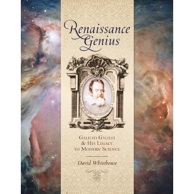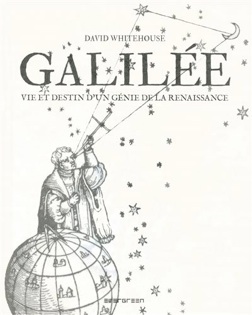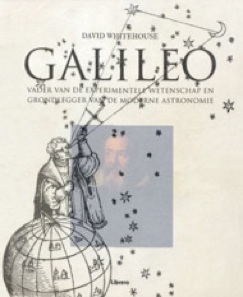Galileo:
Renaissance Genius
From The Oxonian.
Galileo, the ostensible “father of modern physics”, very nearly became a priest. Had it not been for the encouragement of his unconventional father, the outspoken scientist would never have had the chance to open up the sky and transform how the world saw itself. Astrophysicist David Whitehouse maps out this unlikely story in stunning technicolour in Renaissance Genius, juxtaposing Galileo’s inexhaustible curiosity about the universe with the rise of the inquisition and heavy-handed methods of the church.
Whitehouse evocatively explores Galileo’s childhood, his first tremulous forays into science, and his unfailing Catholicism. The last of these narratives renders the church’s treatment of the scientist positively agonizing: while Galileo reconciled his faith with his discovery of Jupiter’s moons (which implied that the universe did not revolve around the Earth as scripture taught), the church ensured that spiritual—rather than scientific—criticism prevailed. Poignantly, we learn that Galileo would never know if he had done enough to escape the fate of other intellectuals victimised by the inquisition, who were consigned to infamy rather than academic acclaim.
Renaissance Genius concentrates largely on these social quandaries rather than hard physics, paying deserved homage to its hero’s character.
Whitehouse combines just enough science with rich details of Galileo’s personal and professional life, ranging from precarious battles for patronage to the scientist’s attempts to discover the location and size of Dante’s inferno. He also acknowledges the endearing legends that surround Galileo, an essential aside in any biography whose subject is so near mythical.
While this relative paucity of didactic content may dissuade more traditional science readers, Whitehouse’s approach wins out in the end, for he exposes the terribly human struggles behind the great scientist’s accomplishments.




